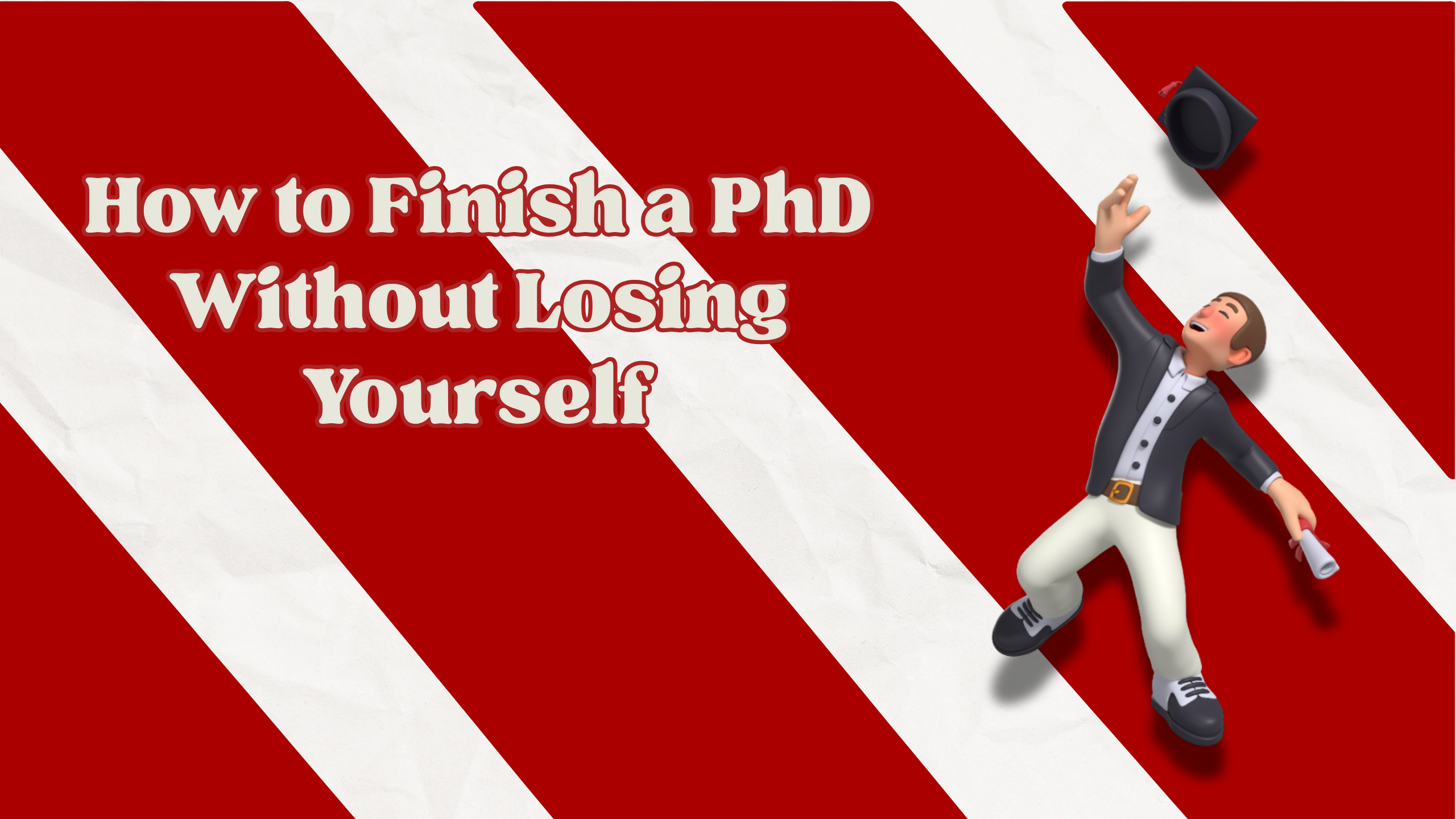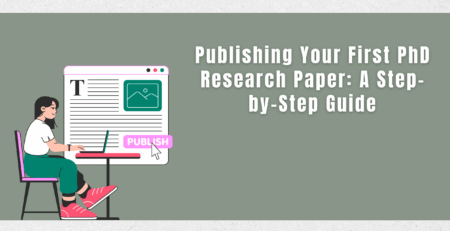01Jul

A PhD is often described as a journey—but let’s be honest, it’s more like a marathon through a mental obstacle course. Between research pressures, self-doubt, and isolation, it’s easy to feel like you’re losing parts of yourself along the way. But it doesn’t have to be that way. In this blog, we’ll explore how to Finish a PhD Without Losing Yourself—protecting your identity, peace of mind, and sense of purpose. Because your degree is important—but so is your well-being, and it is absolutely possible to Finish a PhD Without Losing Yourself in the process.

Before we talk about staying grounded, let’s understand why so many PhD scholars feel like they’re unraveling.
The flexibility of a PhD program can be both a blessing and a curse. Without a 9-to-5 schedule, work easily spills into evenings, weekends, and even vacations. Before you know it, your whole identity becomes “the PhD student.”
You might feel like you’re never doing enough—or worse, that you don’t belong in academia at all. The pressure to publish, present, and please your supervisor can drain your confidence and creativity.
PhD life can get lonely. While your friends might be climbing corporate ladders, you’re buried in journals and citations. This isolation can be emotionally exhausting.
Research doesn’t always go as planned. Experiments fail. Deadlines shift. Reviewers reject. This unpredictability wears you down over time.
You don’t have to sacrifice your mental health or identity to earn your doctorate. Here’s how to navigate the PhD experience while staying true to yourself.
A structured routine gives your day clarity and prevents burnout. But flexibility is key. Here’s what works:
Tip: Treat your PhD like a job. When your day ends, shut the laptop and go live your life.
Don’t let your world shrink to supervisors and lab mates.
These outside connections remind you of who you are beyond your thesis topic.
Success in a PhD isn’t only about publications or awards. It’s also:
Celebrate the small wins—they keep you going.
Your mental health isn’t a luxury—it’s a necessity. If you’re anxious, depressed, or constantly exhausted, it will affect your research and your life.
Remember: A healthy scholar produces better research.
If you’re in a spiral of stress or doubt, step away—even if it’s just for a few hours.
Take a walk. Cook your favorite meal. Watch something funny. A short break can reset your brain and your perspective.
Remind yourself why you started this journey.
Reconnect with your why—it’s your anchor when things get tough.
Your relationship with your supervisor can shape your entire PhD experience.
A respectful, professional dynamic protects your mental well-being.
PhD journeys are deeply personal. Some finish in 3 years, others take 6. Some publish five papers, others publish one. And that’s okay.
Comparison creates unnecessary pressure. Stay focused on your progress, not others’.
You’re allowed to be tired, confused, or even bored. You’re not a robot—you’re a researcher doing complex work in a complex world.
Take naps. Cry if you need to. Laugh at memes. Call your mom. You are not defined by your thesis.
If you feel persistently overwhelmed, don’t tough it out alone.
Your mental and emotional health matter just as much as your research outcomes.
Here are a few practical tools that help you finish your PhD without losing yourself:
The PhD is a chapter—not the entire book of your life.
Yes, it’s demanding. Yes, it’s time-consuming. But it doesn’t have to erase who you are. You’re not just a scholar. You’re a friend, a daughter or son, a partner, an artist, a dreamer.
And when you finally submit that thesis, we hope you look in the mirror and still recognize the person smiling back at you.
You can Finish a PhD Without Losing Yourself—and when you do, you’ll be proud not just of your work, but of the person you remained along the way. Let this be your reminder: it is absolutely possible to Finish a PhD Without Losing Yourself and still hold onto what makes you.
Kenfra Research understands the challenges faced by PhD scholars and offers tailored solutions to support your academic goals. From topic selection to advanced plagiarism checking.
Is PhD mandatory for Assistant Professor from 2023 ? As you begin your search for an assistant professor position, it... read more

Selecting the right base paper for your research is one of the foundational steps in conducting impactful research. The base... read more
Karachi University (University of Karachi): Karachi University, often referred to as KU or UoK, is one of Pakistan's leading public... read more

Publishing your First PhD Research Paper as a PhD scholar is a significant milestone. It's more than just a... read more
Vectors, RAG are behind a lot of the AI magic RAG (Retrieval-Augmented Generation), and similar techniques are foundational to many AI... read more

Research papers are the backbone of academic progress, showcasing your hard work and contributing to the body of knowledge... read more

Updated List of Annexure Journals for Anna University read more
Teachers asked to apply for principals’ posts in engg colleges The statement "Teachers asked to apply for principals’ posts in engineering... read more
WhatsApp us
Leave a Reply